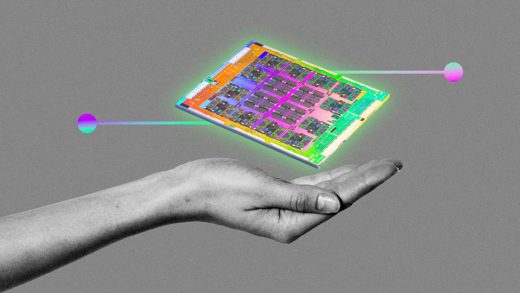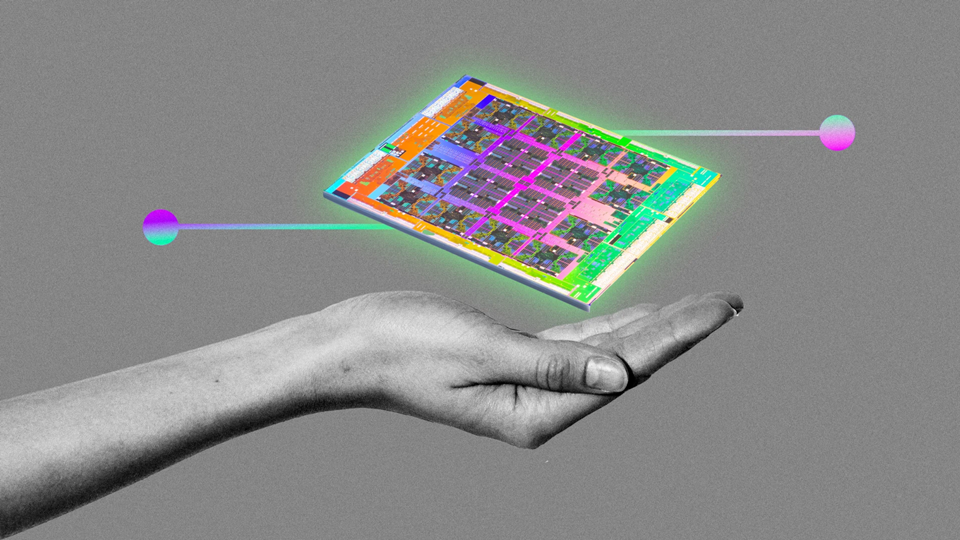Can humans trust GenAI?
Can humans trust GenAI?
Sunny Webb shares insights on what needs to happen for generative AI to move forward with conviction.
At the Exceptional Women Alliance (EWA), we enable high-level women to mentor each other to enable each leader to achieve personal and professional happiness through sisterhood. As the nonprofit organization’s founder, chair, and CEO, I am honored to interview and share insights from some of the thought leaders who are part of our peer-to-peer mentoring.
This month I introduce to you Sunny Webb, an experienced product leader who combines technical innovation with business acumen. Sunny has spearheaded and launched over 50 global AI-enabled products, and developed other complex technology products with the world’s largest and most respected organizations, including Apple, Accenture, Disney, Philips Healthcare, Microsoft, and others. She is a member of OpenAI Forum.
Q: Tell me about some of the highlights of your career.
Sunny Webb: I grew up as a software engineer while the world was figuring out what to do with the internet, so I’ve had a nonlinear career. I gravitate toward the conjunction of two dimensions: impact and possibility. I’m fortunate that one of the products I developed is featured in the Smithsonian Museum, while others have saved lives. I am a coauthor on over 30 technology patents. But the moment I sat across the table from a cancer patient who used a product I spearheaded in development, I experienced karmic satisfaction in knowing I made a positive impact on humanity.
Highlights aside, I’ve worked in AI and machine learning (ML) for my entire career. I’m quite excited about broader AI applications that remove tedious tasks from life and work. I just started working with a stealth company that is applying machine learning toward the compression of cloud infrastructure observability data. For the past year, I’ve also been researching how generative artificial intelligence can be designed and built to be trusted. In my opinion, building trust-centric AI systems is perhaps the most important conversation today in the context of technology and impact.
Q: Can you expand on building GenAI for trust? Is that even possible?
Webb: GenAI is a powerful tool that accelerates creative use cases. For an individual, rather than waiting for a colleague to proofread a letter, GenAI can provide helpful suggestions in seconds. For the enterprise, GenAI can summarize massive amounts of customer feedback, and respond with an appropriate message.
Typically, GenAI tools create multimodal data types including text, images, and video. At a time when “deep fakes” are toppling social media channels, being able to trust that an image or a video is genuine is important for the content consumer. This is especially important during an election year in the United States.
I recently led a research project focused on understanding users’ concerns regarding trusting GenAI. The number-one solution that GenAI users thought would help them trust outputs more is to notify them when they’ve shared sensitive information and allow them to choose what information the GenAI tool can store.
This aligns with what I recently heard at a public event from OpenAI’s CTO, Mira Murati, when she was asked if a watermark on a GenAI generated image provided enough confidence to users. Murati articulated that OpenAI was considering a method for humans to be able to identify components of what she called “hybrid images.” Hybrid images are partially real and partially synthetic. Imagine a GenAI created photo of Dolly Parton on Mars, with Mars labeled as synthetic and Dolly labeled as authentic. This would build trust because it builds a governance of sorts for users to trust a video/image. I think this type of transparent information is one approach to build trust with users. Another would be to flush out concrete interface designs that prevent users from sharing sensitive information, or allowing them to select what data is stored.
Q: So can we trust GenAI today?
Webb: We’re getting closer. I encourage my friends and family to look at GenAI privacy policies and the hallucination data of any GenAI products they use. They’re easy to find on the GenAI vendor’s website.
A good example of a company that has successfully built trust into their products is Apple. I was excited to see Apple’s big announcement at WWDC this past June. This fall, they’re releasing Apple Intelligence, which embeds GenAI on the users iPhone, iPad, and Mac to assist with writing. The announcement garnered attention as it’s performing device processing, as opposed to cloud processing.
When I worked with Apple while at Accenture, I got a behind-the-scenes view of how they operate. Every single business and technical decision at Apple starts from protecting user privacy—without compromise or question. For example, at one time Siri was engineered to not have access to a user’s prior Apple Maps searches. Although this makes Siri a little clumsier, users know that when they pick up an Apple product, they can trust their data and behaviors won’t be transported to another application for their profit. So this new Apple Intelligence announcement is huge for the GenAI community, and I’m excited to see how it moves the conversation of trust forward.
Q: Got it. What are some of the challenges GenAI faces?
Webb: Besides trust? Increasing velocity of multimodal processing, while filtering hallucinations or errors. And a bad reputation for replacing humans.
Q: Why are we talking about AI replacing humans?
Webb: Technology company leaders realize there are two ways to win this new frontier: speed of development, and collecting power. Unfortunately, sometimes power is collected by disseminating fear, and some of the top CEOs have been playing this power grab game by spreading myths about how devastating artificial intelligence could be to humanity.
Honestly, this reminds me of the invention of the internet. No one could predict how powerful it would be, but everyone understood it was a massive leap forward for sharing information. Similarly, pre-dotcom burst, there was a whole silly conversation about how the chat rooms would destroy the social fabric of humanity. Every time I logged into my ICQ messaging chat, my subconscious asked me if I was okay with destroying social norms. But did ICQ dismantle birthday parties or industry conferences? No way. In the same way, GenAI will not replace humans, rather it will open up ways to be more human that we cannot imagine from our current state.
Larraine Segil is founder, chair, and CEO of the Exceptional Women Alliance.
(6)



